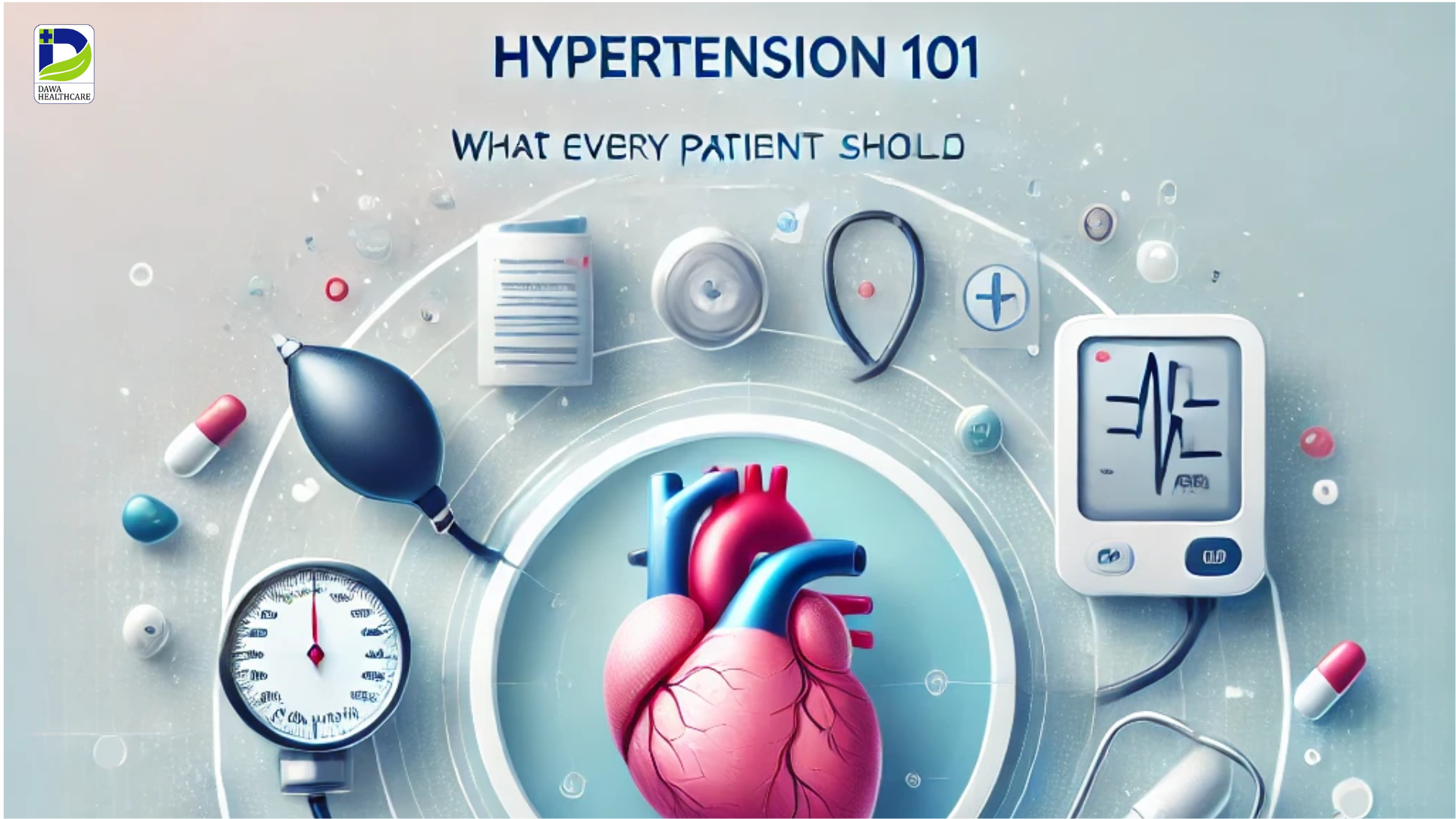
Hypertension 101: What Every Patient Should Know
Do you know why hypertension is called the "silent killer"? This condition affects millions, yet many people don't realize they have it until it leads to severe complications like heart disease or stroke. High blood pressure doesn't usually come with warning signs, but its impact can be life-threatening if ignored. If you understand its causes, symptoms, and prevention strategies, you can take control of your health and significantly reduce your risk. Let's have a detailed look into the essentials of hypertension and explore some hypertension diet and lifestyle tips that can make a big difference in managing this condition.
Symptoms Of Hypertension
Hypertension arises when the pressure of blood flowing through the arteries remains consistently higher than usual. It is a disease that rarely shows symptoms in the early stages. Persistent hypertension can damage blood vessels and organs and lead to severe health issues. When symptoms of hypertension appear, they may include:
- Headaches
- Dizziness
- Shortness of breath
- Nosebleeds
For secondary hypertension, caused by an underlying condition, symptoms might vary depending on the disease. In advanced cases, further complications can arise, such as heart disease, kidney failure, or stroke.
Pulmonary Hypertension Symptoms
Pulmonary hypertension is the type of hypertension that affects lung and heart arteries. Unlike standard hypertension, it involves high blood pressure in the pulmonary arteries. The pulmonary hypertension symptoms include:
- Chest pain
- Fatigue
- Swelling in the ankles, legs, or abdomen
- Fainting or dizziness during physical activity
This condition can worsen over time and requires specific treatment according to the underlying cause.
What Causes Low Blood Pressure?
Though this blog focuses on hypertension, it's essential to touch on the opposite: low blood pressure (hypotension). So, what causes low blood pressure? Major causes include:
- Dehydration due to insufficient fluid intake.
- Blood loss from injury or surgery.
- Heart conditions like bradycardia (slow heart rate).
- Endocrine disorders, including Addison's disease.
- Certain medications, such as diuretics or antidepressants.
Recognizing and managing hypotension is important to avoid dizziness, fainting, and shock in severe cases.
Risk Factors For Hypertension
Several factors increase your risk of developing hypertension:
- Genetics: Hypertension in family history increases the risk.
- Lifestyle Choices: Smoking, excessive alcohol intake, and physical inactivity increase risk.
- Diet: High sodium and low potassium intake are major contributors.
- Chronic Conditions: Diabetes, kidney disease, and sleep apnea are closely linked to hypertension.
- Age and Gender: Men have a higher likelihood of developing hypertension before the age of 55, whereas women face an increased risk after reaching menopause.
Diet And Lifestyle Tips For Hypertension Patients
- Follow Healthy Diet: Eat fruits, vegetables, and lean proteins. Limit processed foods and sugary drinks.
- Reduce Sodium Intake: It should ideally be less than 1,500 mg per day. Avoid high-sodium snacks and fast foods.
- Increase Potassium: Include bananas, spinach, and sweet potatoes to counteract sodium's effects.
- Limit Caffeine: Excessive caffeine can raise blood pressure. Keep consumption moderate.
- Exercise Regularly: Engage in at least 150 minutes per week of moderate exercise like walking, swimming, or cycling.
- Quit Smoking: Smoking damages blood vessels and worsens hypertension. Seek support to quit.
- Reduce Stress: Incorporate practices like yoga, meditation, or deep breathing into your routine to help alleviate stress.
- Achieve Healthy Weight: Even a small reduction in weight can significantly lower blood pressure levels.
Complications Of Untreated Hypertension
Without proper management, hypertension can lead to serious health issues, including:
- Heart Attack and Stroke: Hypertension is a leading cause of cardiovascular diseases.
- Kidney Damage: High blood pressure can damage kidneys and may lead to kidney failure.
- Vision Loss: Hypertension can also severely damage blood vessels in the eyes.
- Cognitive Decline: Studies link hypertension to dementia and memory loss.
Monitoring And Treatment
Regularly checking blood pressure at home is helpful to track progress and identify any fluctuations. Blood pressure monitoring devices are widely available and are quite easy to use. Also, doctors may prescribe medications based on severity, including:
- Diuretics
- ACE inhibitors
- Beta-blockers
- Calcium channel blockers
It is strictly not recommended to stop or change a medication without consulting a doctor.
When To See A Doctor
Seek medical advice if you experience symptoms of hypertension or pulmonary hypertension, such as chest pain, persistent headaches, or swelling. Regular screenings and checkups are quite essential, particularly for those with a family history or other risk factors.
Summing It Up
Understanding hypertension, its symptoms, and prevention strategies is key to living a healthier life. Whether you're managing high blood pressure or addressing related conditions like pulmonary hypertension, adopting a heart-healthy lifestyle and following hypertension diet and lifestyle tips can make a significant difference. Stay informed, monitor your health, and seek professional guidance to keep hypertension under control. You can get your hypertension medicines and blood pressure monitoring apparatus through Dawa Healthcare, the leading online pharmacy in Karachi. Whether you want to buy through our stores or order online, we provide both options.
